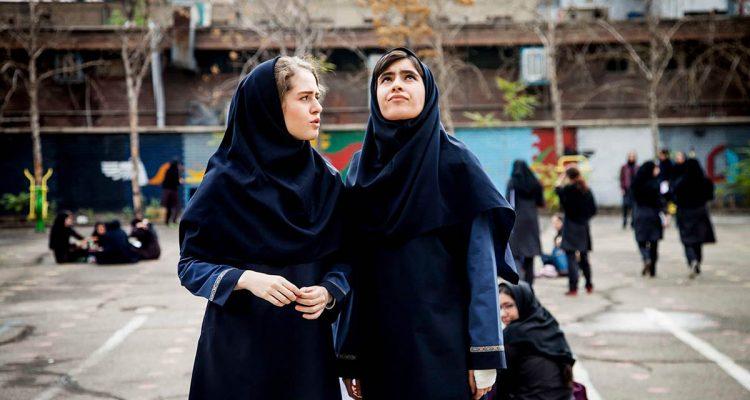If the purpose of festivals is to showcase groundbreaking creators and their ideas, it’s no wonder Iranian debut “Ava“ has garnered awards and praise on its journey through North America. The assured feature from director Sadaf Foroughi impressed at TIFF, picking up the FIPRESCI Discovery Prize, and now it’s poised for even more success after its New York debut at New Directors/New Films. “Ava,” which follows the struggles of a teenage girl as she comes of age amid deeply-entrenched sexism, is a provocative and candid work about the realities of female adolescence.
The film opens on a terse exchange between Ava (Mahour Jabbari) and her mother, Bahar (Bahar Noohian) — typical teen girl, mom-you’re-embarrassing-me stuff that lays the groundwork for their nastier conflicts to come. Somber visuals and meditative shots evoke just how trapped Ava feels in her own life and her parents are constantly fighting, usually over her. Her mother refuses to validate her love of violin, insisting that musical studies are a waste of time. Ava moves through the first act of the film a beleaguered powder keg, at once resigned and defiant. When she bets her friends Melody (Shayesteh Sajadi) and Shirin (Sarah Alimoradi) that she can score a date Melody’s brother, Nima (Houman Hoursan), Ava’s cunning adolescent ambition soon snowballs into a disaster she can’t control.
“Ava” stays focused and unwavering throughout its thoughtful narrative centered on policed female adolescence. The film revels in long takes, unconventional framing, and striking, color-blocked visuals to immerse viewers in its quiet-yet-sinister world. The dialogue is frank — Ava’s mother threatens to kill her for sneaking off with a boy, teachers at her school give lectures about female promiscuity that would raise American Evangelicals’ eyebrows — but the ways in which Ava moves through her suffocating life are unendingly complex. This is in part due to a jaw-dropping performance from lead Mahour Jabbari, whose striking face and unprecedented ability to embody her character lend the film much of its viscerality. Bahar Noohian also stuns as Ava’s overcompensating, overwhelmed mother, a woman unable to reconcile womanhood.
While these qualities excel, “Ava” lingers in its viewers’ heads because of its singular visual aesthetic. Cinematographer Sina Kermanizadeh and art director Siamak Karinejad team up to bathe Ava’s world in soft light, decorating the film in shades of red and blue that ultimately work to separate Ava from the monotony of her own life. Experimental framing and focus elevate “Ava” from a straightforward indie drama to a true mood piece, inviting viewers into a universe they won’t leave simply by exiting the theater.
For all its confidence and care, “Ava” occasionally lingers too long in its own aesthetic, pushing the boundaries between meditative and tedious. There are times, when watching “Ava,” where one can feel like, although plenty of things are going on, nothing has really happened. A hair-raising episode of violence halfway through the film shocks the script out of its own fugue, and the movie could use more of such moments to keep viewers from drowning in its droll depression. Still, that depression is part of why Ava works: female adolescence really can be that suffocating and unglamorous.
All in all, “Ava” is an accomplished work that marks bright futures for all its cast and crew, particularly writer-director Sadaf Foroughi and star Mahour Jabbari. This is one of the most thoughtful films about the female experience to debut in recent years, and should be mandatory viewing for anyone eager to engage with confidently-made, skillful art cinema. [B+]

